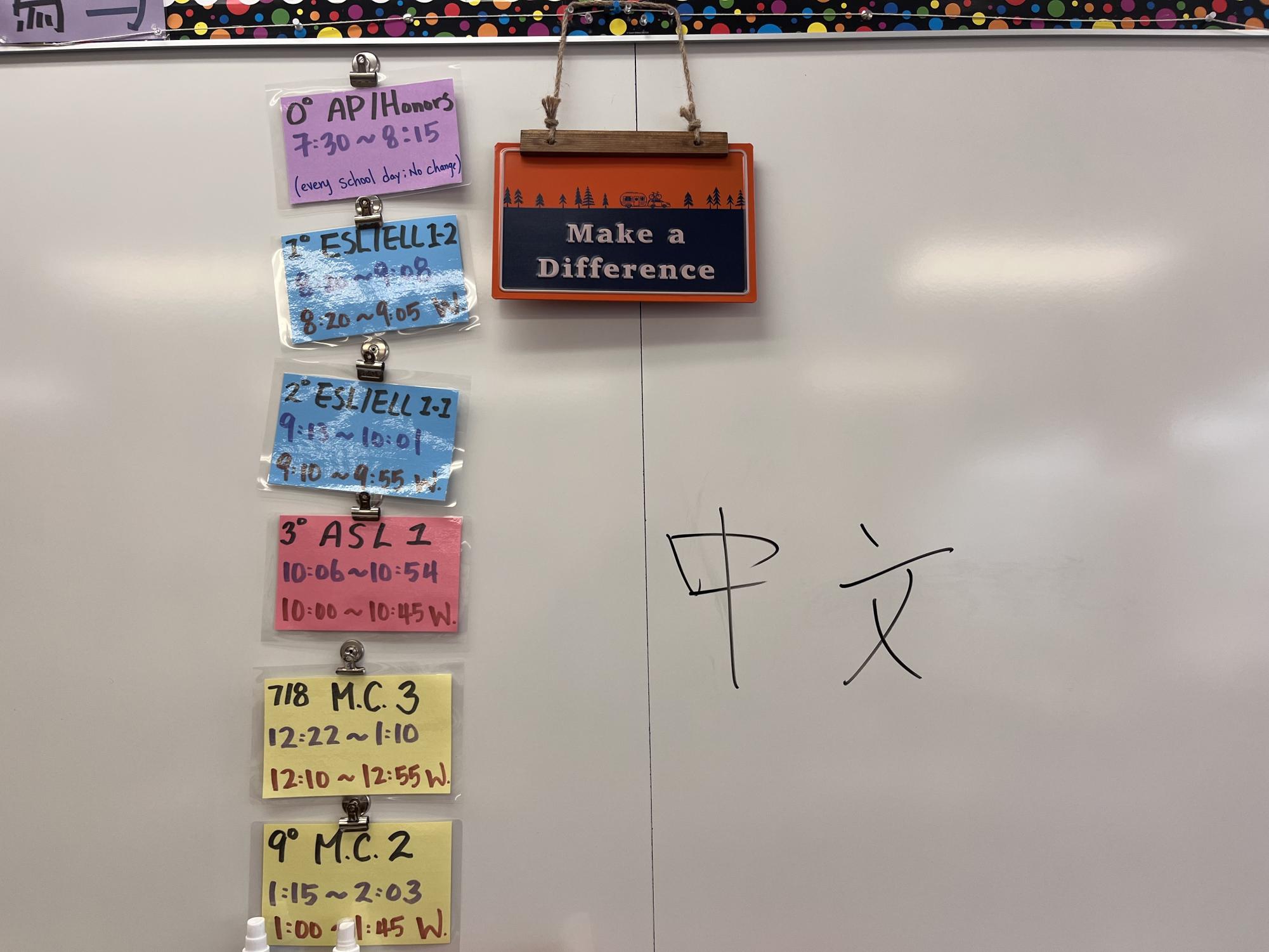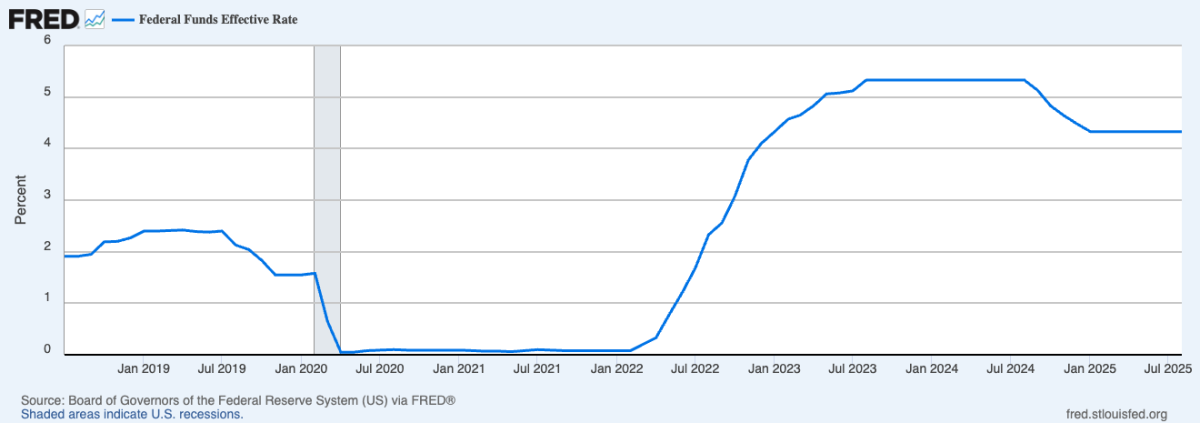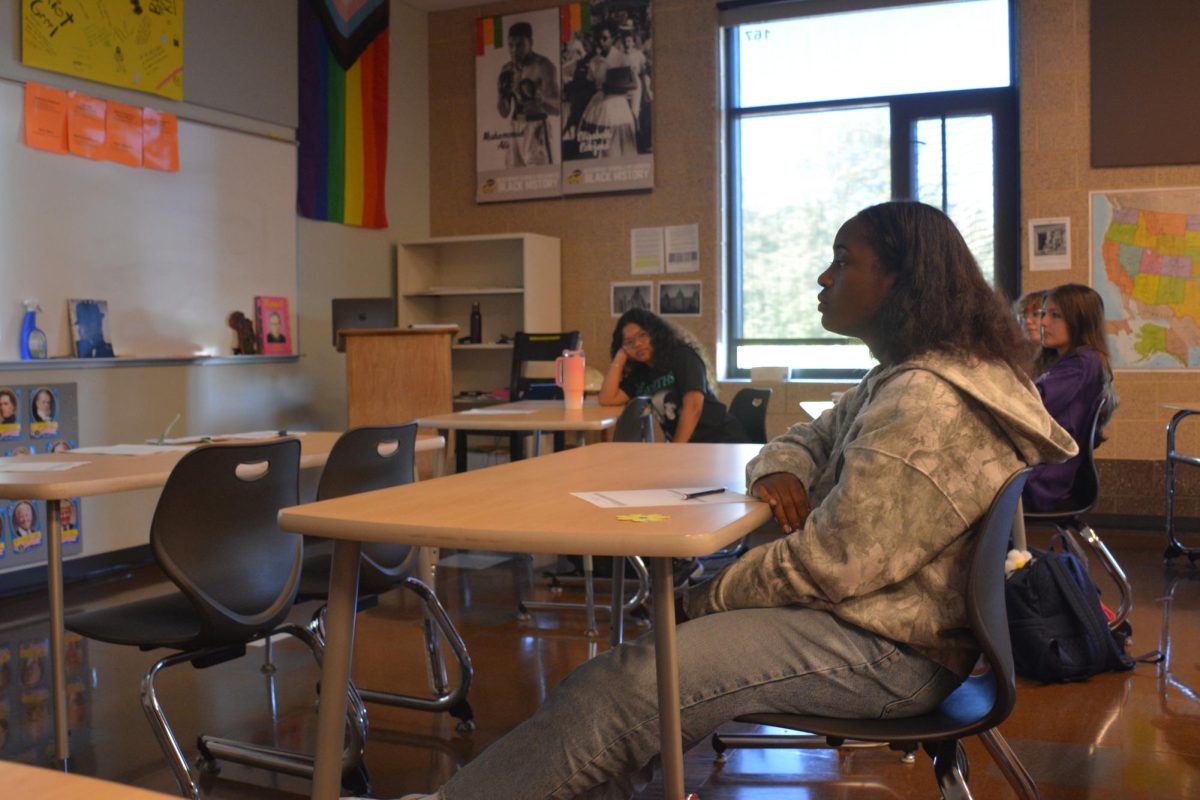My classmates and I were shocked and confused when we saw in our draft schedules that honors Chinese 4 and AP Chinese classes were merging into a combined “zero period” class for the 2024-2025 school year.
This decision, communicated to us in the final few weeks of school last year, sparked concerns not only about the early 7:30 start time, but also the educational consequences of a combined class with two different curricula.
How were we supposed to learn Chinese at an Honors and AP level when our teacher needs to split her time teaching two separate classes at the same time?
Our parents were equally concerned that the administration made such a huge adjustment to the Chinese schedule without first communicating with the families directly affected by the change.
On June 7, a few weeks after students were officially notified of the change, a group of families whose children were planning on taking Chinese classes in the future, representing 20 Beachwood students from seven grade levels, sent an email expressing their concerns to Superintendent Dr. Bob Hardis and BHS Principal Paul Chase.
“To the best of our knowledge, there was no attempt [by the administration] to communicate with families,” the parents wrote. Families had to reach out to the administrators for an explanation, not the other way around.
At around the same time in late May and early June, several concerned parents also reached out and had both virtual and in-person meetings with Chase addressing their concerns about zero-period combined Chinese.
These parents brought up several unaddressed concerns regarding the schedule change, focusing on, among other concerns, the loss of instructional time that a combined zero-period Chinese class would cause. They argued that this problem could only be remedied by students doing more work outside of school, or by starting the zero period class even earlier.
“We do believe that either option is detrimental to our students, and this adjustment will notably affect the ability and performance of those intending to enroll in the class,” the parents continued.
Dr. Hardis and Mr. Chase didn’t reply to this email until July 17, over a month after the email was sent. In their response they emphasized that the combined classes are a result of dwindling enrollment numbers in the Chinese program.
“We have reached a point in Chinese course enrollment that we can no longer sustain such small classes,” they wrote back. “We need to make a change – one we hope is temporary – until enrollment numbers improve.”
The administration plans to increase enrollment numbers by sending the honors 4 and AP Chinese teacher Ai-Lan Lin, to Hilltop and Bryden to teach a new elementary school Chinese unified arts class. Her schedule change also leaves her unavailable for academy periods at the high school, meaning that Chinese students will not be able to get additional help before or after school.
“It is our goal to increase Chinese class enrollment,” the administrators’ email stated. “We have taken significant steps at the elementary level to do so.”
“We recognize that zero period has some disadvantages, but the value of being able to run the class for our students supersedes this disadvantage, in our opinion,” they continued.
This explanation, however, still doesn’t eliminate the detrimental effects of this change to the honors 4 and AP Chinese teacher or the students taking the class. These effects have been already realized in the month that school has been in session, with multiple students complaining about the loss of instructional time and sleep that they have suffered.
This year Lin has a loaded teaching schedule, teaching not only the honors 4/AP Chinese class at the high school and elementary level Chinese at Bryden and Hilltop, but also the English as a second language course at the high school.
None of her classes have an academy period for extra help. Her schedule this year requires her to switch buildings in the middle of the day, on top of teaching three classes.
Lin declined to comment about her schedule this year.
Several students have commented on how the schedule change has affected their ability to learn the Chinese language.
“I have been struggling with this class [honors Chinese 4], and because of the way the scheduling works, there is no opportunity to go in for academy to ask questions or get help,” said Nick Cheng, a student in honors Chinese 4.
“The AP Chinese curriculum, which is already hard enough to finish teaching in one complete school year, is cut in half,” AP Chinese student Lyndia Zheng said. “While the teacher is teaching the honors kids, we are ‘working,’ but it is nowhere near as helpful as actually being taught.”
Hardis and Chase recently responded to the concern about no academy period in an email.
“We are confident Ms. Lin can adjust her instructional practices so that students get the assistance they need during class instead of during an Academy period,” they wrote.
As a result of the combined zero-period Chinese, Chinese students are losing even more instructional time during class to receive extra help, which makes the standardized AP Chinese curriculum incredibly difficult to cover. For example, both Chinese classes are already behind in the curriculum even in the first few months of school. Although other classes at Beachwood have successfully been taught using a combined class, it is still a difficult adjustment for many students.
Zero-period Chinese has also already negatively impacted students’ well-being in the first months of the new school year.
“I feel miserable for the entire evening and afternoon,” Cheng said, “Zero period [Chinese] has been hurting my sleep schedule pretty badly.”
Notably, several students have also complained about how the swim team morning practice has been pushed earlier by 30 minutes—a start time of 5:30 a.m.—for all swimmers as a result of a schedule conflict with zero-period Chinese, further harming students’ sleep schedules.
Even if zero-period Chinese may have been a necessary administrative adjustment for the Chinese program, it has a significant detrimental impact on the students and teacher affected.
“Your children are bearing the burden of this temporary fix,” the administrators wrote in their email.
The students taking Chinese are being forced to choose between quitting the language that they are passionate about, or enduring a year of waking up early in order to receive instruction that is much less thorough than it could have been. Even though the administration had valid reasons for this change, many families were only notified about the rationale halfway into summer.
If anything results from this dialogue between administration and families, we would like to have the administration have more proactive communication with families before finalizing changes that can affect them. Chinese students were thrown into an unfavorable situation without any warning from the administration, and we had no choice but to endure these changes.









![“My parents have always said that education is important. My parents are Chinese immigrants, I'm Chinese American, [and that's a] value that has always been ingrained in our community,” said Senior Lyndia Zheng, pictured with Tony Zheng](https://bcomber.org/wp-content/uploads/2025/10/DSC_4244.jpg)




